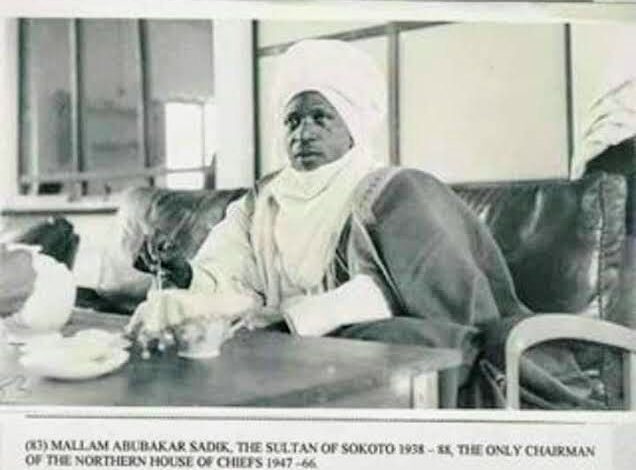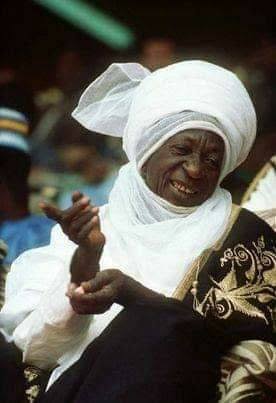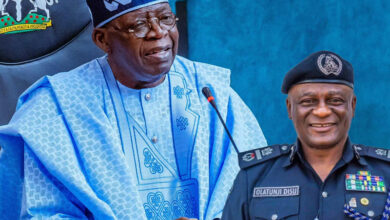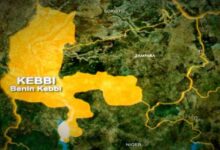FOR THE RECORD: Sir Siddiq Abubakar III, Sultan of Sokoto 1938-1988

By BASHIR ADEFAKA
The 17th Sultan of the Sokoto Caliphate and Sarkin Musulumi of Nigeria, Sir Siddiq Abubakar III, was knighted by the British in 1944 and after attaining independence (1960) he was made Grand Commander of the Order of Niger (GCON) by the Federal Government of Nigeria…and was the only Chairman of the revered Northern House of Chiefs which he was between 1947- 1966.
Born in the year 1903, Sir Siddiq Abubakar III died in late 1988 at the age of 85.
Precisely, he was born at Dange, on 15th March, 1903, same day the British finally subdued the Sokoto Caliphate son of Usman Shehu, grandson of Mu’azu Dan Bello, direct descendent of Usman Dan Fodio.
Sir Abubakar III was the fourth heir to the two century-old throne founded by his ancestor, Sheikh Usman Dan Fodio who lived 1754-1817.

Sir. Abubakar III had Islamic education after which he held several administrative positions before succeeding his uncle, Hassan Ibn Muazu, at the age of 35 in the year 1938.
He was appointed as a local authority councillor of the Sokoto Native Administration (Head of Talata Mafara now in Zamfara State) during which he distinguished himself by his administrative competence and the able way he dealt with appeals from traditional courts and supervised district and village heads.
He held the title of Saurdauna of Sokoto until 17th June 1938, when he became the 17th Sultan of the great Sokoto Caliphate.
As the 17th Sultan of Sokoto (Sarkin Musulmi), he became the most important Islamic personality at the South of the Sahara, and highly respected. He was the leader of 50 million adherents of the Islamic faith in West Africa.
Although he did not occupy a visible political position in Nigeria, his de facto political influence was considerable and throughout his life he worked towards the promotion of Nigeria’s unity, and used his decisive influence over public affairs for the political and social advancement of Nigeria as one nation.
He contributed a great deal to the maintenance of order and calm among the population of the then Northern Region after the 1966 coup in which Sir Ahmadu Bello was killed. During the Nigerian Civil War, he helped to mobilise men for the Federal forces.
Sir Siddiq Abubakar III saw the development of his country in a different light from many of his more conservative co-religionists. He encouraged further education for females and voting for women in purdah. He urged the liberation of women in these respects, as a result of which the Women Teacher’s Training College in Sokoto was founded.
His faith in and identification with the quest for knowledge led to his appointment as Chancellor of the University of Nigeria, Nsukka, which awarded him an honorary LLD degree.
During his life, however, Sir Siddiq Abubakar III, in common with other traditional rulers, witnessed several in-roads into his power base, such as loss of control over the local courts, prisons, and police. But because of his mature outlook he did not allow these developments to affect his concern for the welfare of his people.
He saw these changes as inevitable in the wider context of the country’s politics and in the overall interest of Nigeria’s development. When Northern People’s Congress (NPC) was formed in 1951 and his support was needed to launch the new party and mobilise the Northern people for the independence movement, he readily gave it.
Sir Abubakar III took the post of Minister without Portfolio in the Northern Regional Government in order to give support to the new administration headed by Sir Ahmadu Bello.
When party politics became divisive, he stepped out of it to safeguard his role as the spiritual leader, but continued to be looked up to by other leaders on certain governmental issues.
He was knighted by the British in 1944 and after attaining independence (1960) he was made Grand Commander of the Order of Niger (GCON) by the Federal Government of Nigeria.
He had great love of poetry and, as a traditionalist, kept the culture of his people alive while recognising the need to develop their potential and achieve progress in the modern world.
Sir Siddiq Abubakar III, GCON, ruled the Sultanate for one of the longest reigns in its history, from 17th June, 1938 to 1st November, 1988 when he died, having celebrated only four months earlier his 50th year on the throne.
It should be noted that Sir Siddiq Abubakar III was the only Chairman of the revered Northern House of Chiefs which he was between 1947- 1966.
Sultan Abubakar III was a father in-law to many prominent personalities that included but not limited to now late Emir of Kano, Alhaji Ibrahim Ado Bayero, the now Emir of Zazzau, Alhaji (Dr.) Shehu Idris and a host of others.
He left behind 52 children with Alhaji Muhammadu Maccido Abubakar III (the 19th Sultan of Sokoto), who succeeded Sultan Ibrahim Dasuki in 1996 and died on 29th October, 2006, as the eldest, and Isah Saddiq Abubakar III as the youngest, with more then 320 direct grandchildren.
The 17th Sultan of Sokoto, Sir Siddiq Abubakar III’s predecessors on the throne included but not limited to: Abubakar Atiku I, Abubakar Atiku II, Muhammadu Attahiru I, Muhammadu Attahiru II, Sarkin Musulmi Hassan Dan Mu’azu.
He was succeeded by his nephew, late Sultan Ibrahim Dasuki from Buhari Dan Shehu ruling clan in November, 1988, as the 18th Sultan of Sokoto, until he was dethroned by the then Military Government of late General Sani Abacha in 1996.
The incumbent Sultan of Sokoto, His Eminence Alhaji Muhammad Sa’ad Abubakar, CFR, mni, is a biological son of the 17th Sultan of Sokoto, late Sir Siddiq Abubakar III, GCON, succeeding his elder brother, late Muhammadu Maccido son of Sir Siddiq Abubakar III on 6th November, 2006.
Sultan Abubakar III is best remembered by his compatriots as a religious leader, who rose above religious dissensions of his days and who throughout his life played the role of a peace-maker and father of all.
Late Sultan Abubakar III answered the call of his creator and joined his ancestors on 1st November, 1988, nearly four months after he had celebrated his golden jubilee (50th Anniversary) on the throne.
May the souls of our departed ones rest in perfect peace. Da fatan Allah shi kyauta makwanci, Allah shi jikan magabatanmu, Allah shi kyauta tamu bayan ta su, Amin.
Source: From the archives








